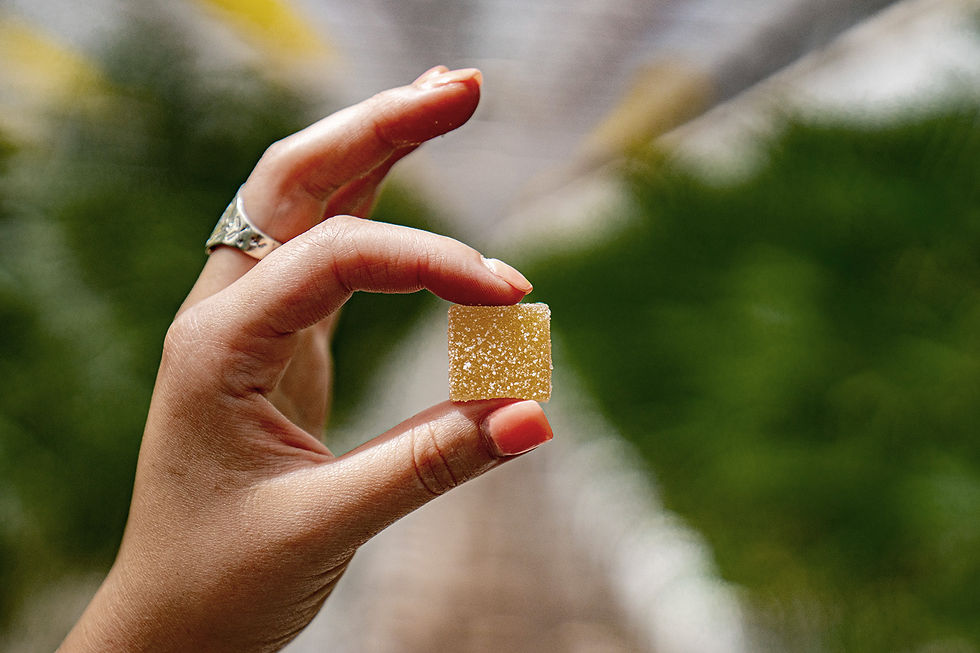Top nutrition tips to supplement with CBD
- Feb 18, 2020
- 2 min read

In today’s world, we are inundated with fast-paced, toxic environments which can lead to poor diets and emotional and physical stress. Our endocannabinoid system is our environmental response system and is tasked with keeping us balanced and healthy. It synthesizes its own human-made endocannabinoids, like Anandamide, to help the body regulate inflammation and stress. However, if it is constantly under assault through poor diets, pollution, and stressful circumstances, it can become overwhelmed and unable to properly produce endocannabinoids the body needs.
How does CBD support your endocannabinoid system?
According to Dr. Rachel Knox of the American Cannabinoid Clinic, we need Omega-3 and Omega-6 fatty acids to even make the proper endocannabinoids, and many of us can be deficient in these compounds. This is where phytocannabinoids from hemp like CBD can come in to assist. CBD prevents the breakdown of the human-made endocannabinoid, Anandamide, which can raise the overall levels of Anandamide in the body. It’s a little like suggesting to someone who is deficient in Vitamin A to take a supplement to raise their Vitamin A levels. CBD and other phytocannabinoids from hemp can affect many other bodily systems including your serotonin and opioid system. They work synergistically together and can be supplemented with other non-hemp foods like echinacea to create botanical synergy, according to Dr. Knox.
What types of food can support CBD supplementation for optimal health?
Nutrition always comes first. Natural, whole foods with healthy fats are essential to proper bodily functioning. High-quality fats from sources like hemp seed oil, olive oil, coconut oil, and avocado oils are great for daily use. These fats produce Omegas which our endocannabinoid system uses to synthesize endocannabinoids, like Anandamide. Phytocannabinoids like CBD can help maintain healthy endocannabinoid levels especially if we become deficient in them. It is recommended to consume 5-9 tablespoons of high-quality fats daily depending on your body. Overly processed foods are hard to digest and lack nutritional value and can impact normal levels of endocannabinoids.
What practices can support a healthy endocannabinoid system?
According to the American Cannabinoid Clinic, the use of non-hemp substances coupled to certain mood-influencing practices can stimulate and regulate the endocannabinoid system. Together these substances and practices are known as Cannabimimetics. Cannabimimetics includes nutrition, physical activity, detoxification, supplementation, yoga, meditation, deep breathing, acupuncture, and more. Since the endocannabinoid systems helps to regulate systems that affect your mood like serotonin and opioid, daily practices that influence your mood and stress levels feedback onto your endocannabinoid system. Hence it is important to live a well-rounded, holistic lifestyle full of natural whole foods and physical activity while also surrounding yourself with a positive community.
How can CBD grow the health of both people and planet?
Since the health of your endocannabinoid system is directly reliant on your immediate environment, it is important to support companies that work towards both human and environmental well-being. For example, we at Asha Apothecary take a holistic approach in both ensuring optimal purity backed by a QR code and supporting organic, regenerative farming to create healthy soils for nutrient-rich food while drawing down carbon dioxide. Our choices for ourselves and our community will help ensure holistic health for both people and planet.



Comments